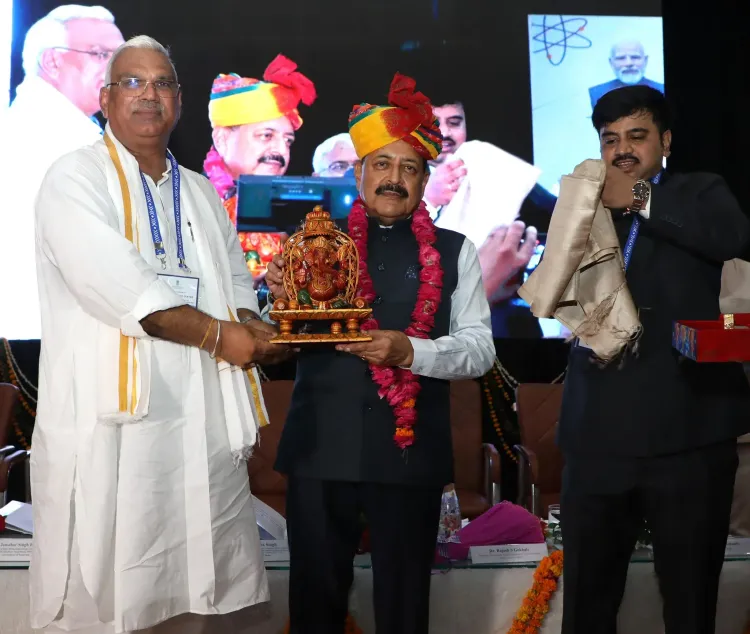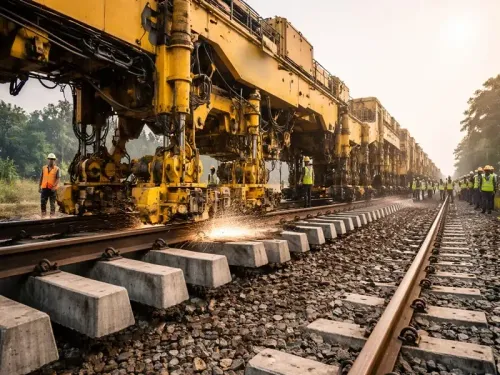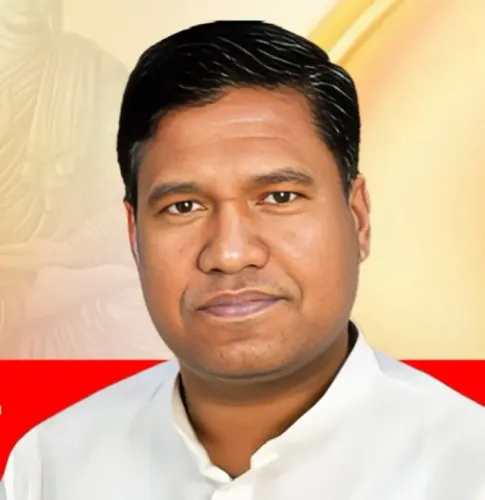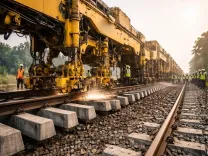How is PM Modi transforming 'backward districts' into 'aspirational districts'?

Synopsis
Key Takeaways
- Dholpur Science Centre inaugurated as a symbol of transformation.
- Focus on inspiring youth through hands-on science learning.
- Aligns with PM Modi's vision for aspirational districts.
- Aims to bridge the innovation gap between urban and rural India.
- Encourages local entrepreneurship and careers in science.
New Delhi, July 8 (NationPress) In a momentous occasion on Tuesday, the Minister of State for Science and Technology, Dr. Jitendra Singh, officially launched the Dholpur Science Centre in Rajasthan, marking a pivotal achievement for the area.
Dholpur, previously regarded as a backward district, is now included in the national effort to establish 'aspirational districts' under the guidance of Prime Minister Narendra Modi.
The opening of this Science Centre represents a transformation in how these districts are perceived, shifting from underdevelopment to recognizing their capacity for growth and innovation.
Addressing a gathering of students, educators, and local officials, Singh highlighted that the Science Centre is more than just a structure; it is a mission aimed at motivating young individuals.
"This Centre is not solely about infrastructure; it is about providing children with the chance to dream big," he stated.
The Science Centre is set to become a hub for students to engage in interactive science learning and nurture their curiosity.
It aims to bridge the innovation gap between urban and rural India, particularly focusing on Tier-2 and Tier-3 towns.
Developed in collaboration with the Department of Biotechnology (DBT), the National Institute of Immunology (NII), and the National Science Centre, the Dholpur Science Centre is part of a broader initiative to create similar hubs in other aspirational districts throughout India.
Officials noted that this initiative aligns with the government’s ‘Vigyan Setu’ concept, which seeks to link scientific institutions with underserved regions to enhance innovation and research.
The Centre offers a unique experience featuring interactive exhibits, STEM learning modules, and activities designed to inspire students to think creatively and innovate.
Singh emphasized how this initiative could ignite local entrepreneurship and inspire students to pursue careers in science and technology.
"This represents the future of India, where our youth take the lead in shaping a vibrant and sustainable nation," he remarked.
Reiterating the significance of science, Singh shared instances of India’s recent scientific milestones, including astronaut Shubhanshu Shukla’s involvement in the Axiom Mission-4 to the International Space Station.
"Science has the potential to take you anywhere—from your village to outer space," he said, encouraging the students to embrace science with confidence.
The Minister also pointed out how the Prime Minister’s vision of transforming 'backward districts' into 'aspirational districts' has reshaped India’s narrative.
"No district is backward," he asserted. "It’s about establishing the right benchmarks and providing the necessary support," he added.
"Under this vision, numerous districts, including Dholpur, have made significant strides, overcoming the barriers of underdevelopment and welcoming innovation," Singh stressed.
Discussing the role of education in preparing the next generation for the challenges of India’s centenary year of Independence in 2047, Singh stated, "The children present today may become the future scientists, innovators, and leaders. It is our duty to ensure they are equipped to build a Viksit Bharat (Developed India)."
Singh also encouraged students to follow their passions in science, highlighting the flexibility of the new National Education Policy, which allows students to explore subjects based on their interests.
"Let’s eliminate the barriers that hinder students from pursuing their true passions," he concluded.










